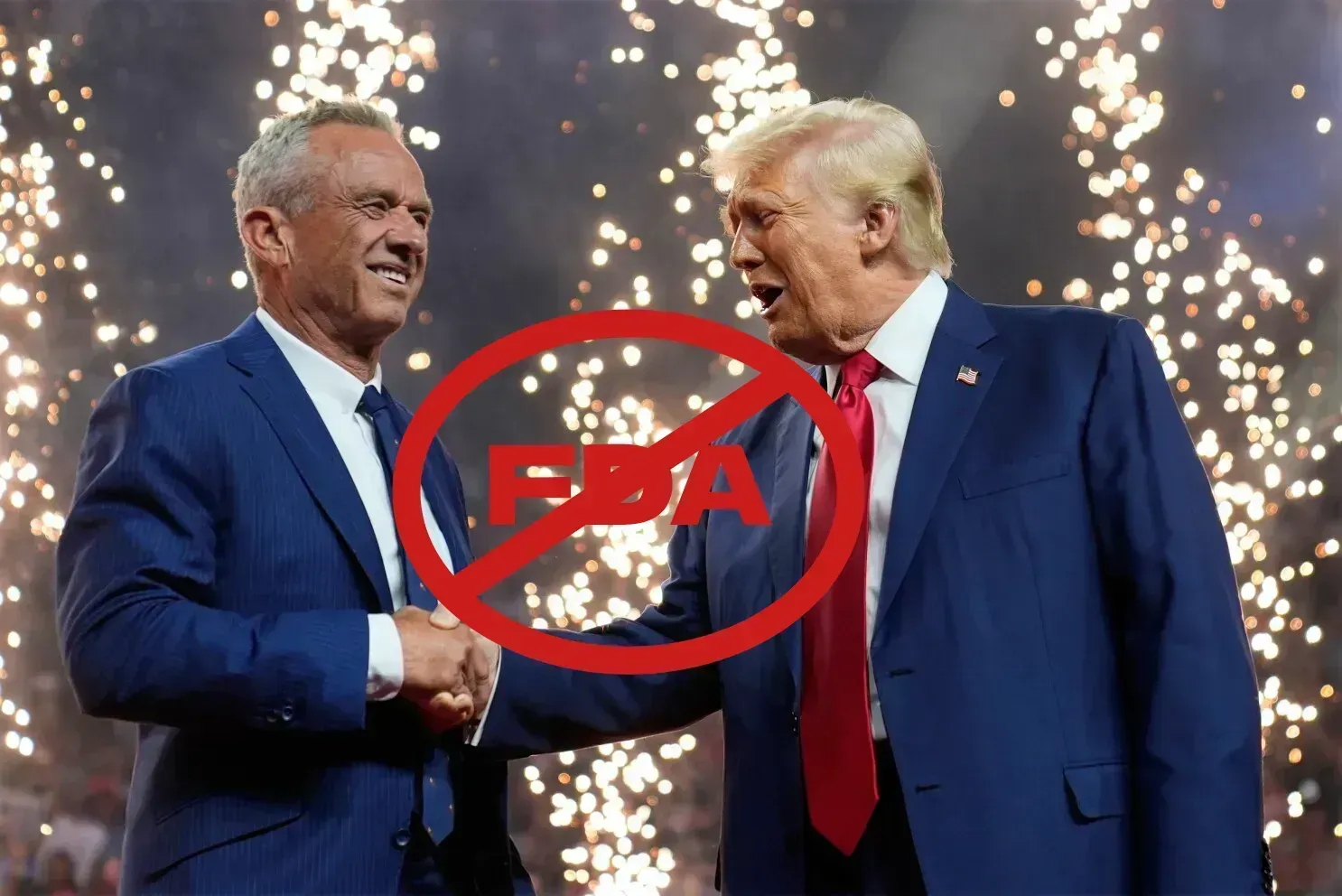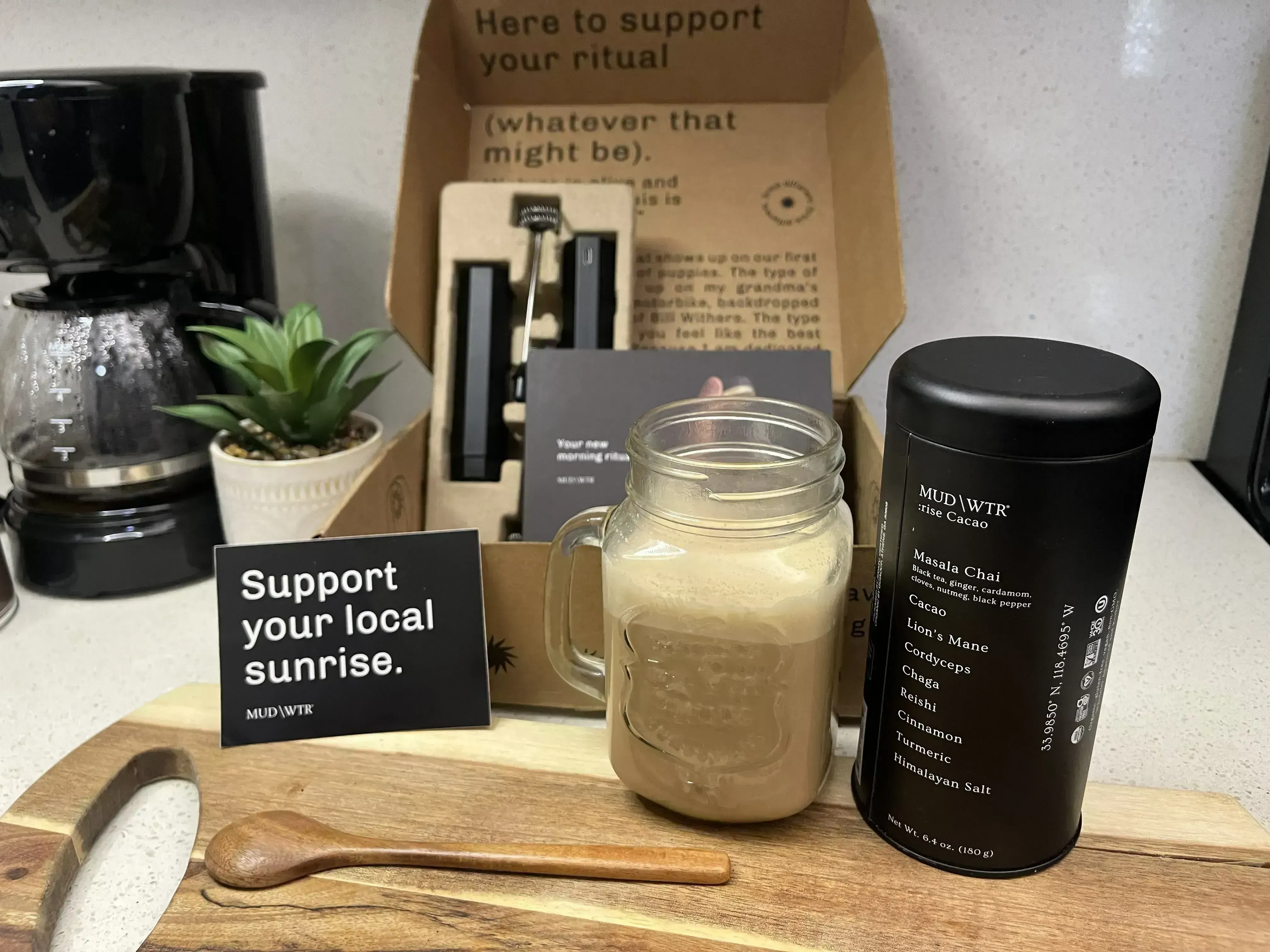Introduction
Who We Are
Welcome to Fungi Review, a team built on health enthusiasts, and entrepreneurs who aim to be your trusted guide to exploring the incredible world of mushrooms. Whether you're a wellness enthusiast, a curious foodie, or someone seeking natural ways to enhance health, we've got you covered.
At Fungi Review, we are passionate about demystifying mushrooms and their many uses. From comprehensive product reviews and brand comparisons to informative guides on mushroom identification and benefits, we aim to be your one-stop resource. Our mission is to provide clear, honest, and research-backed insights that empower you to make informed decisions about your health and lifestyle.
Quick Facts about Trump, RFK Jr., and the FDA:
- The FDA oversees an estimated $2.8 trillion worth of products annually, including supplements and natural health products.
- Trump signed the "Right to Try Act" in 2018, giving terminally ill patients access to experimental treatments outside traditional FDA approval.
- RFK Jr. is a vocal advocate for reducing the pharmaceutical industry's influence over federal regulatory agencies like the FDA.
- Under Trump’s administration, the FDA approved a record 59 new drugs in 2018, reflecting his push for faster approvals.
Trump, RFK Jr., the FDA, and the Future of Natural Products, Psychedelics, and Functional Mushrooms
In recent years, discussions around natural health products, psychedelics, and functional mushrooms have gained momentum, fueled by evolving public perceptions and political influences. The intersection of these industries with U.S. politics has become especially intriguing under the presidencies and campaigns of notable figures like Donald Trump and Robert F. Kennedy Jr. (RFK Jr.). Their stances on the FDA and broader healthcare reform could shape the regulatory landscape for natural products in profound ways. Want to know more about RFK Jr. stance on other health policies check out this BBC article
Trump’s Presidency and the FDA
Donald Trump’s administration was marked by significant shifts in the approach to healthcare and regulatory oversight. While his presidency didn’t specifically target natural products, psychedelics, or functional mushrooms, certain deregulatory policies hinted at a potentially favorable climate for these industries.
- FDA Deregulation and "Right to Try"
Trump signed the "Right to Try Act" in 2018, which allowed terminally ill patients to access experimental treatments not yet fully approved by the FDA. While the act primarily focused on conventional medicines, it set a precedent for challenging the FDA’s traditional gatekeeping role. This could have ripple effects for industries advocating for faster approval of innovative therapies, including psychedelics and functional mushrooms. Advocates for these treatments often highlight how bureaucratic delays hinder progress in addressing urgent health challenges like mental illness, chronic pain, and immune system dysfunctions. - Push for Less Regulation
Trump’s broader agenda to reduce regulatory burdens across industries included a directive for federal agencies to eliminate two regulations for every new one implemented. While this didn’t directly impact the natural products sector, it created a business-friendly environment that some natural health companies found advantageous. This approach paved the way for small businesses and startups specializing in dietary supplements and alternative therapies to enter the market more easily, fostering innovation in the wellness industry. - Limited Direct Focus on Psychedelics
During Trump’s term, the psychedelic space began gaining mainstream attention, but federal policies largely remained unchanged. However, his administration’s focus on deregulation may have indirectly supported the growing conversation around alternative treatments. Organizations advocating for the medical use of psychedelics, such as MAPS (Multidisciplinary Association for Psychedelic Studies), gained more visibility during this period, pushing for psilocybin and MDMA to be reclassified for therapeutic use.
RFK Jr., the FDA, and Alternative Health
As a prominent advocate for medical freedom and a vocal critic of regulatory agencies like the FDA, RFK Jr. has sparked both controversy and support. His stance on health and wellness issues suggests that his influence could have significant implications for natural products and psychedelics.
- Criticism of the FDA
RFK Jr. has been outspoken about what he perceives as undue influence from pharmaceutical companies on the FDA. He argues that the agency prioritizes corporate interests over public health. This perspective aligns with the goals of many in the natural health community, who feel the FDA’s rigorous standards disproportionately favor pharmaceutical drugs over natural remedies. He’s also criticized the FDA’s slow adoption of emerging science, suggesting that faster approvals of proven therapies could benefit millions of Americans seeking alternatives to traditional medicine. - Support for Holistic Health and Natural Products
RFK Jr. has expressed support for holistic health approaches, including the use of natural supplements and alternative therapies. If he were to gain significant political influence, it could lead to reforms that favor the functional mushroom and psychedelic industries. His advocacy also emphasizes educating the public about natural health options, reducing dependency on synthetic pharmaceuticals, and empowering individuals to make informed decisions about their well-being. - Psychedelics and Mental Health
The ongoing mental health crisis in the U.S. has intensified interest in psychedelics like psilocybin for conditions such as depression, PTSD, and anxiety. RFK Jr.’s focus on alternative treatments could accelerate efforts to decriminalize and research psychedelics, creating opportunities for companies specializing in these areas. Additionally, his push for greater transparency in regulatory processes might ensure that these treatments reach patients without unnecessary delays. RFK and like-minded people like Joe Rogan and JD Vance are very pro-psychedelic therapy for veterans. Watch this clip here from Joe Rogan's podcast.
Spotlight on Functional Mushrooms
Functional mushrooms like lion’s mane, reishi, and chaga have become staples in the wellness industry, praised for their potential benefits for cognitive health, immunity, and overall vitality. However, these products often face unique regulatory hurdles, particularly when companies make health claims that require scientific validation.
The FDA’s stringent guidelines on labeling and marketing can limit how brands communicate the benefits of functional mushrooms to consumers. This creates challenges for businesses trying to balance compliance with the demand for transparency. Additionally, funding for large-scale research on functional mushrooms remains limited compared to pharmaceutical drugs, slowing the pace at which these natural remedies gain mainstream acceptance.
Despite these challenges, the growing consumer interest in natural wellness solutions has propelled the functional mushroom market forward. Innovative brands are finding ways to navigate regulations while delivering high-quality products that meet the needs of health-conscious individuals.
Quick Facts about Psychedelics and Natural Products:
- In 2020, Oregon became the first U.S. state to decriminalize psilocybin mushrooms for therapeutic use.
- Research indicates that psilocybin-assisted therapy can reduce symptoms of major depression by up to 71% after just two treatments.
- Over 75% of Americans take dietary supplements regularly, showing strong consumer interest in natural health products.
The FDA’s Role in Natural Products and Psychedelics
The FDA has historically been a contentious entity for proponents of natural products and psychedelics. Critics argue that the agency’s lengthy approval processes and stringent requirements hinder innovation and access to alternative therapies.
- Current Challenges
- Natural Products: Many natural supplements and functional mushroom products fall under the category of dietary supplements, which are regulated differently from pharmaceuticals. While this offers some flexibility, it also means that these products can face scrutiny over claims of efficacy. Companies must tread carefully when marketing products like lion’s mane and reishi for cognitive health or immune support, as unsubstantiated claims can attract regulatory penalties.
- Psychedelics: Psychedelic compounds like psilocybin remain classified as Schedule I substances under the Controlled Substances Act, making research and commercialization challenging despite promising clinical results. Advocacy groups continue to push for reclassification, emphasizing the potential benefits these substances offer for mental health treatment.
- Potential Reforms
Both Trump’s deregulatory philosophy and RFK Jr.’s push for transparency and reduced corporate influence could reshape the FDA’s approach. Possible reforms might include: - Streamlined approval processes for natural and alternative therapies.
- Greater funding and support for psychedelic research, enabling scientists to conduct large-scale trials.
- Enhanced collaboration between regulators, researchers, and industry leaders to balance safety concerns with innovation.
Functional Mushrooms and Psychedelics: The Road Ahead
The growing popularity of functional mushrooms like lion’s mane, reishi, and chaga reflects a broader trend toward natural wellness. Meanwhile, the psychedelic renaissance—fueled by breakthroughs in mental health treatments—continues to gain traction. Both industries stand to benefit from regulatory and cultural shifts.
- Increased Consumer Demand
Consumers are increasingly seeking natural solutions for health and wellness. Functional mushrooms are being incorporated into everything from coffee blends to skincare products, while psychedelics are hailed as the next frontier in mental health care. This surge in demand is driven by growing awareness of the limitations of conventional medicine and a shift toward preventive care. - Evolving Legal Landscape
States like Oregon and Colorado have already decriminalized psilocybin for therapeutic use, and similar initiatives are spreading across the U.S. Federal reform could further accelerate the adoption of these treatments. Legislative changes could also open doors for more research into the health benefits of functional mushrooms, potentially positioning them alongside psychedelics as transformative wellness tools. As of recent several cities in Oregon are trying to ban psilocybin - Political Influence
The stances of influential political figures like Trump and RFK Jr. could play a crucial role in shaping public policy. Their approaches to healthcare reform, FDA regulation, and alternative therapies will likely impact how quickly these industries can grow. By fostering an environment that supports innovation and reduces barriers to entry, they could help usher in a new era for natural health.
Quick Facts about Industry Trends:
- The 2022 Natural Products Expo West saw a 25% increase in exhibitors featuring functional mushrooms and adaptogenic products.
- FDA regulations currently restrict supplement brands from making explicit health claims without scientific evidence, impacting product marketing.
- The Biden administration allocated $30 million in 2023 for research into psychedelic therapies, signaling growing federal interest.
Economic Impact on Small Businesses
Small businesses in the natural health space often face significant barriers when entering the market, from regulatory compliance costs to competition with larger corporations. However, political shifts favoring deregulation could level the playing field, allowing smaller companies to thrive.
Functional mushroom brands, in particular, stand to benefit from policies that reduce bureaucratic hurdles and promote innovation. For example, streamlining the FDA approval process for dietary supplements could enable startups to bring new products to market more quickly, fostering competition and driving industry growth.
Moreover, increased consumer demand for natural health solutions has created a vibrant ecosystem of small businesses catering to niche markets. By supporting these entrepreneurs, policymakers can help cultivate a diverse and dynamic wellness industry.
Case Studies or Examples
Several functional mushroom brands have successfully navigated the complexities of the regulatory landscape to establish themselves as leaders in the industry. For example:
- Four Sigmatic has popularized mushroom coffee and elixirs by focusing on transparency and consumer education, ensuring compliance with FDA guidelines while promoting the benefits of functional mushrooms.
- Oriveda leverages scientific research to back its claims, positioning itself as a trusted name in the functional mushroom space.
These success stories demonstrate that while the regulatory environment can be challenging, it’s possible for brands to thrive by prioritizing quality, transparency, and innovation.
Future Predictions for the Mushroom and Psychedelic Industry
The future of natural products, functional mushrooms, and psychedelics is bright, with several trends likely to shape the industry:
- Increased Research Funding
As public interest grows, so too will the demand for scientific studies that validate the benefits of natural therapies. This could lead to greater investment in research, paving the way for new discoveries and applications. - Shifts in Consumer Behavior
Health-conscious consumers increasingly seek natural solutions, creating opportunities for brands to expand their offerings and explore innovative formulations. - Regulatory Reforms
Political advocacy and public pressure could lead to significant changes in how the FDA regulates natural products and psychedelics, making it easier for these industries to flourish. - Integration into Mainstream Healthcare
As functional mushrooms and psychedelics gain acceptance, they may become integrated into conventional healthcare practices, bridging the gap between traditional medicine and holistic wellness.
Final Thoughts
The intersection of politics, natural health products, and psychedelics is a dynamic space with the potential for significant change. While Trump’s deregulatory agenda laid some groundwork, RFK Jr.’s advocacy for medical freedom and criticism of regulatory institutions may catalyze further reforms. For proponents of functional mushrooms and psychedelics, the future holds promise—but navigating the complexities of politics and regulation will remain key to unlocking their full potential.
As consumer interest grows and research continues to highlight the benefits of these alternative therapies, the path forward will likely involve collaboration between industry leaders, policymakers, and advocates. The promise of a more holistic, inclusive healthcare landscape—where natural products and psychedelics play a central role—is closer than ever. However, achieving it will require perseverance, transparency, and innovation.





